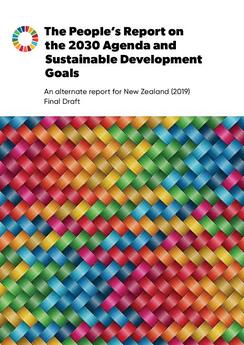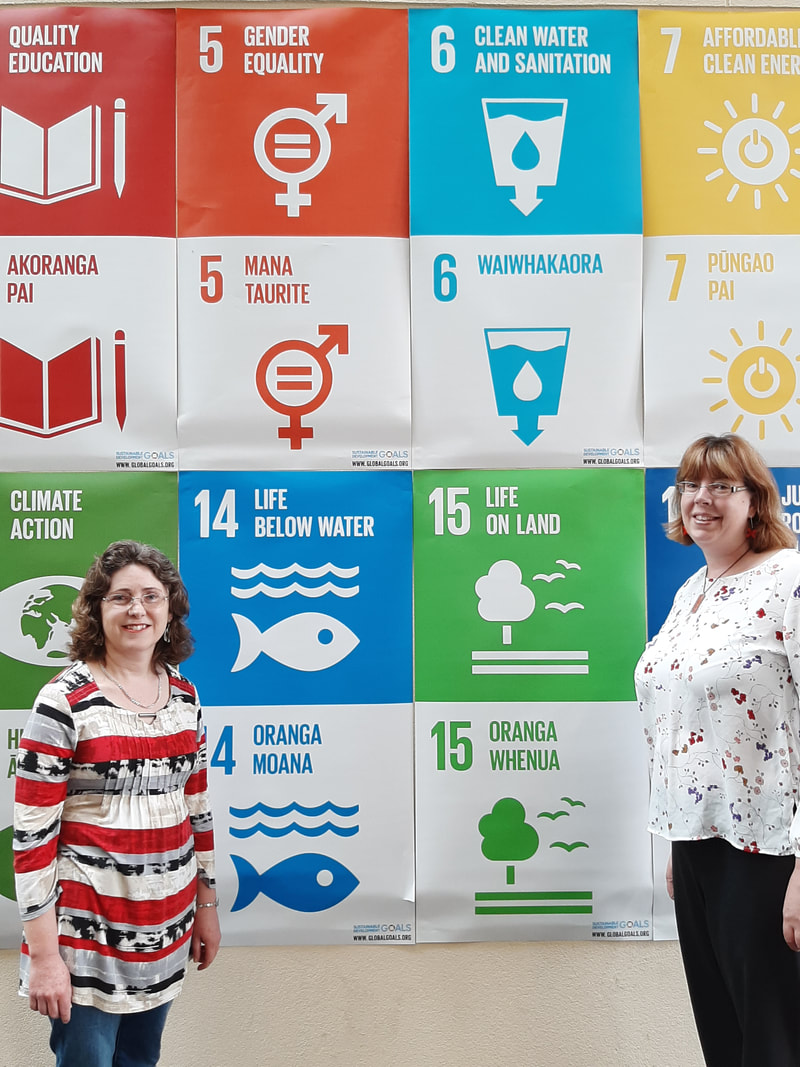LIANZA is proud to have contributed some library content and stories.
| Ronja Ievers (Hui E! Community Aotearoa) says: It has been four years since New Zealand made a commitment, when it signed onto the global 2030 Agenda for Sustainable Development, to empower people, reduce inequalities, promote social, economic and political inclusion, and to leave no one behind. Yet knowledge about the SDGs in New Zealand is still fragmented, and government engagement is low. The many people who have contributed to the People’s Report in various ways hope that it, and the government’s own progress report (VNR), will provide a basis for moving forward together–in greater partnership to implement a vision and framework that clearly link Te Tiriti o Waitangi, the SDGs and the Living Standards Framework, to create a more just, equal and sustainable future. |
The People’s Report also includes newly released data; links to reports and reviews; case studies; interviews; recommendations and high level results from a survey of organisations in June 2019.
The many people who have contributed to The People’s Report in various ways hope that it, and the government’s Voluntary National Review (VNR) report, will provide a basis for moving forward together–in greater partnership to implement a vision and framework that clearly link Te Tiriti o Waitangi, the SDGs and the Living Standards Framework, to create a more just, equal and sustainable future.
Case studies included in the final People’s Report are from Auckland Library, Waimakariri Library and Counties Manukau Health Library. Information was also provided by LIANZA and the National Library of New Zealand.
| Writers and contributors are:
|
|
Sustainable Development Goals in te reo Māori
| An inter-disciplinary team from Victoria University of Wellington has translated the 17 SDG goals into te reo Māori, and paired this translation with the SDGs in English in the form of posters. 'The act of translating the SDGs affords a contextual lens through which we can navigate our progression to a more sustainable future together as New Zealanders,' says Tonya Sweet, Senior Lecturer in Design for Social Innovation at the University’s School of Design. Ms Sweet says, 'Seeing the SDGs translated into te reo I am inspired by a new sense of identity and place-based point of orientation in addressing these goals. The translation has a telescoping effect, in which the enormity of these global goals has been transformed to fit within a New Zealand context.' The translation is in the process of being officially registered with the United Nations. The posters can be used to support local initiatives that address these addressing these global challenges. You can download the PDFs of the posters for printing here. |
Libraries, Development and UN 2030 Agenda SDGs
You can read about the work that IFLA has done here, find the IFLA Toolkit for libraries here and read SDG stories submitted by libraries globally here. IFLA have also created a storytelling manual to assist libraries in telling their SDG stories.
IFLA Statement on Libraries and Development
Access to information is a fundamental human right that can break the cycle of poverty and support sustainable development.
The library is the only place in many communities where people can access information that will help improve their education, develop new skills, find jobs, build businesses, make informed agricultural and health decisions, or gain insights into environmental issues.
Their unique role makes libraries important development partners, both by providing access to information in all formats and by delivering services and programmes that meet the needs for information in a changing and increasingly complex society.
Through the Statement on Libraries and Development, IFLA affirms that:
• Libraries provide opportunity for all
• Libraries empower people for their own self-development
• Libraries offer access to the world’s knowledge
• Librarians provide expert guidance
• Libraries are part of a multistakeholder society
• Libraries must be recognised in development policy frameworks




 RSS Feed
RSS Feed